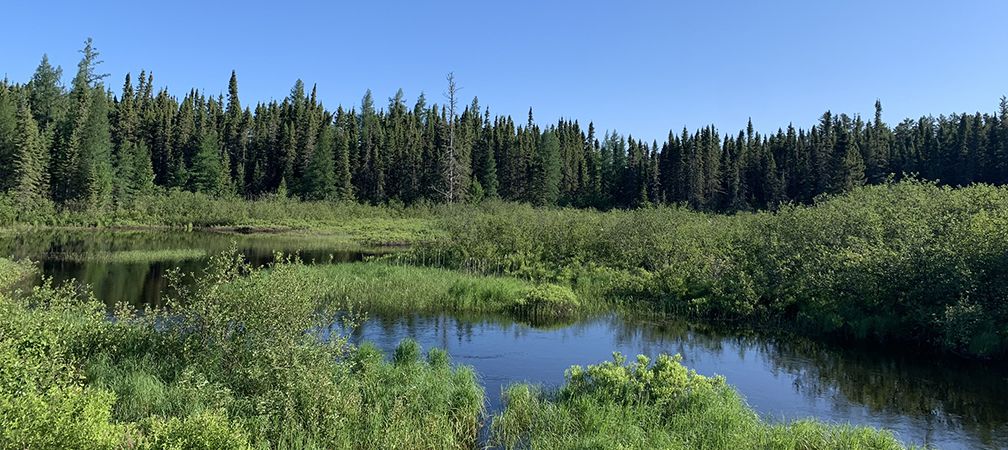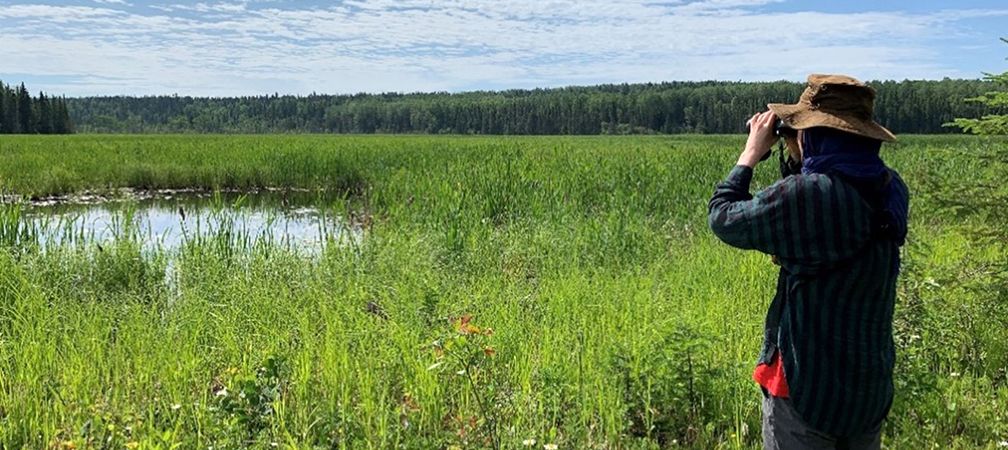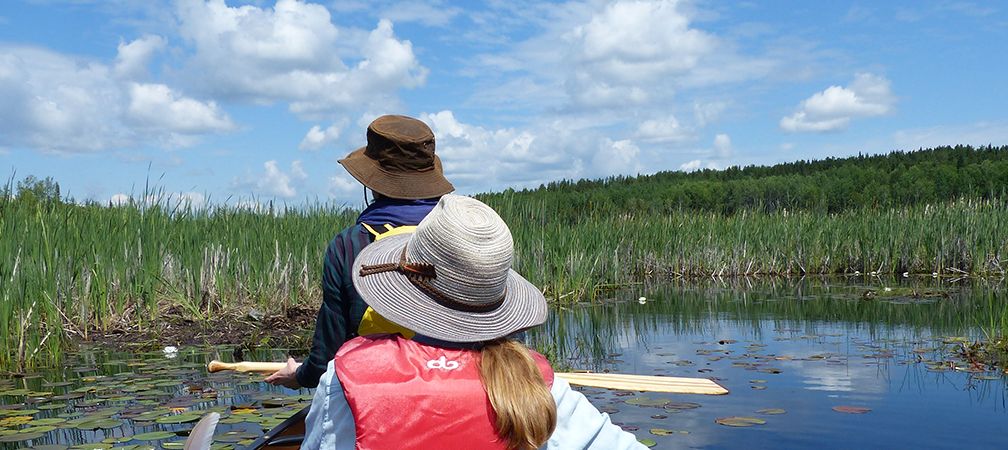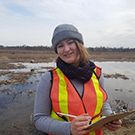Ontario Nature Blog
Receive email alerts about breaking conservation
and environmental news.
© Lora Denis
Northern Ontario wetlands © Abby Lewis
For decades, Ontario Nature and many of our dedicated Nature Network groups have worked hard to celebrate the significant values of wetlands and advance wetland conservation across Ontario. We care deeply about this work. Hence why we were concerned to read an article, published by Northern Policy Institute in October, which argues that wetland protections under Ontario’s Provincial Policy Statement (PPS) are a “significant impediment to development in Northern Ontario” and should not strictly apply in northern Ontario.
We’d like to set the record straight.
No doubt, as the authors of the article claim, northern and southern Ontario experience unique economic, environmental and social challenges and opportunities. In some instances, these call for distinct policy responses. Despite their differences, however, both regions face the devastating impacts of climate change and biodiversity loss. Likewise, in their ability to respond to these crises, both would benefit immensely from retaining wetlands.

For example, a study cited in the 2019 report of Ontario’s Special Advisor on Flooding found that wetlands can reduce flood damage and costs by up to 29 percent in rural areas and 38 percent in urban areas. Whether one lives in northern or southern Ontario, it’s well worth considering the potential outcomes of building on a wetland which of course has a natural tendency to collect water. As noted, many years ago, in a commentary published by the National Wildlife Federation:
“When wetlands are filled, the water that made them wet has to go somewhere. If it isn’t seeping back into the basement of the house built on the former wetland, the water likely is leaking into formerly dry homes of downstream property owners.”
As for the article published by Northern Policy Institute, the authors make many misleading and, at times, wholly incorrect statements about wetland policies in the PPS and how they apply in the north. First, the gist of the article is that the PPS doesn’t differentiate between protections for wetlands in the north compared to the south. In fact, however, the strictest protections for wetlands apply in only about 16 percent of the province – roughly, from Sault Ste. Marie and Sudbury southwards (policy 2.1.4 of the PPS).

Further, the authors wrongly claim that “all wetlands are assumed to be provincially significant unless a wetland evaluation confirms otherwise.” This is simply false. Ontario Nature has been advocating for such a policy for years without success – on the reasonable premise that we need to know the value of something before we authorize its destruction. The Environmental Commissioner of Ontario made the same point in their 2018 Environmental Protection Report, which states that wetlands in Ontario generally receive no protection until they have been evaluated and recognized as provincially significant. They further asserted that “all unevaluated wetlands should be protected (i.e., presumed significant) until proven otherwise.” (p.9)
Indeed, what the authors fail to discuss is the recent gutting of the Ontario Wetland Evaluation System. What used to be the science-based cornerstone of wetland protection in Ontario has been torn apart. Consequently, we are likely to see far fewer wetlands protected, regardless of where in Ontario they occur. That’s because very few wetlands will be designated as provincially significant and many with that designation may lose it along with the protection it confers.

Oddly, the authors claim on one hand that the PPS “dries up northern economic opportunities” and on the other that exempting northern Ontario from wetland protections would have “minimal, if any impact in the region.” Of the two contradicting claims, which is true?
The latter claim is certainly questionable. While there is an abundance of wetlands in northern Ontario, it’s vital to recognize that all wetland losses have impacts on local biodiversity and climate resiliency. Wetlands are protected for a reason.
The wealth of wetlands that still exist in northern Ontario presents an opportunity not to repeat the mistakes that led southern Ontario to lose more than 72 percent of these critically important ecosystems. While a unique approach to planning and development in the north may be warranted, watering down wetland protections is unconscionable and unjustified – especially in the face of ongoing environmental deregulation across the province.
Ontario Nature is committed to continuing to advocate for wetland protections across Ontario for the benefit of all life – are you?
By Jenna Kip and Sarah Hasenack

Jenna joined Ontario Nature in the summer of 2021 after graduating from Trent University and Fleming College. Her work supports the Protected Places Campaign by providing visual communication of significant environmental features and conducting assessments of protected places. Jenna has a deep passion for wildlife and the environment and can always be found in nature where she enjoys camping, cooking over fires, hiking and wildlife photography.

Sarah (she/her) joined Ontario Nature as a Wetland Conservation Intern in Spring 2022. She has a passion for the protection and appreciation of nature fostered through years of family camping and hiking trips, which is now backed up by both a Bachelor and Master of Science in Environmental Sciences completed at the University of Guelph.

Gananoque Lake Nature Reserve © Smera Sukumar
Thank you for this. Keep uo the good work.
From the Northern Policy Institute’s website: “Northern Policy Institute is Northern Ontario’s independent, evidence-driven think tank.” I guess the Institute conveniently decided to dismiss the science-based evidence regarding the importance of wetlands. Ignoring or misunderstanding evidence to further a development agenda is not being “evidence-driven.”